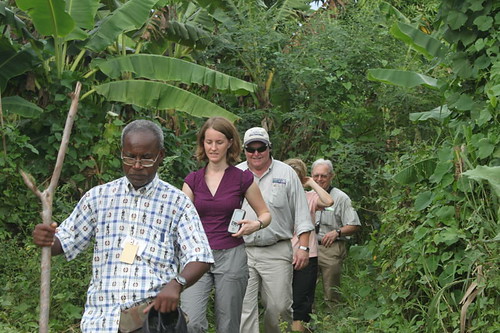
Today marks the one-year anniversary of the devastating earthquake that hit Haiti. The earthquake devastated the already fragile and poor country, killing more than 300,000 people, and brought economic activities to a standstill leaving the capital of Port au Prince in a condition that is almost unfathomable to most Americans. In the aftermath of the disaster, the focus on the U.S. government gradually switched from response to recovery.
With over 60 percent of the population living in rural areas and dependent upon subsistence level production, it was early recognized that the agricultural sector was the key to economic recovery and stability in Haiti. In addition, the wide spread malnutrition and under-nutrition required that attention be given to raising the overall level of agricultural productivity and availability. USDA was recognized as having unique abilities to help in these critical areas.
Working closely with the Department of State and the U.S. Agency for International Development (USAID), USDA has played an active role in developing the U.S. strategy for revitalizing the Haitian agricultural sector. USDA has sent a number of technical assessment missions to Haiti, examining a wide range of agricultural issues, from agricultural statistics to agricultural education to natural resource management.
In July 2010, a team of academic experts, led by USDA’s National Institute for Food and Agriculture, examined 10 agricultural schools, reviewing the curriculum and the physical resources of the schools. In September and November 2010, a mission with employees from the Forest Service, the Natural Resources Conservation Service and the Foreign Agricultural Service (FAS) analyzed the natural resource management activities that are necessary to protect agricultural productivity. The team’s work is a critical component to USAID’s process of developing a larger agricultural project in 2011.
FAS plays a coordinating role for the USDA and will soon sign an agreement with USAID to implement a program focused on the Haitian Ministry of Agriculture, Rural Development and Natural Resources. Activities will strengthen the institutional capacity of the Ministry to deliver essential services in research, education, extension and market information to agricultural producers; enhance food security and the nutritional status of the rural population and work with the private sector to increase productivity and efficiency along the marketing chain.
The challenges ahead are formidable and it will take years to establish the conditions for strong economic growth and recovery. But with the determination and spirit demonstrated so far, Haiti is solidly on the road to recovery.


